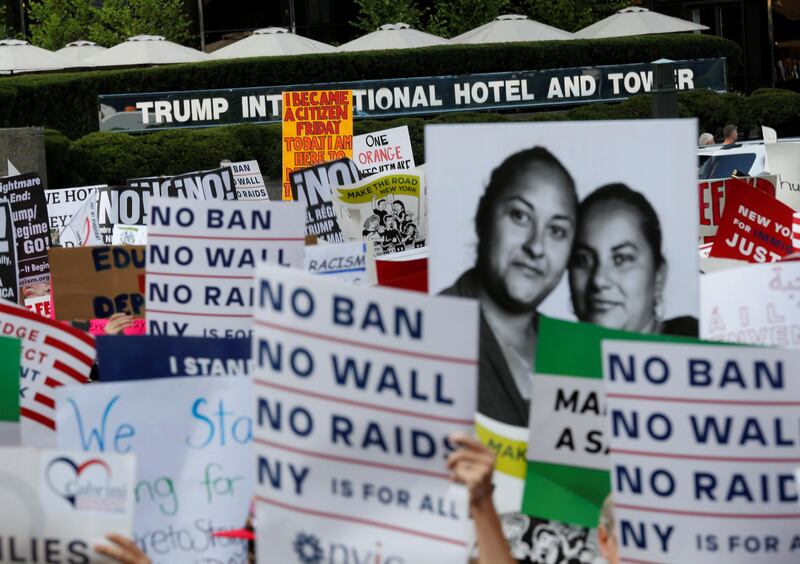The US government has agreed to help people barred from entering the country under president Donald Trump's first travel ban to apply for new visas.
The government's undertaking was given under a settlement reached on Thursday of a lawsuit filed by people affected by the ban on travellers from seven Muslim-majority nations issued in January.
Civil rights lawyers and the Trump administration announced the deal during at a federal court in Brooklyn, one scene of the legal battle over the treatment of hundreds of travellers who were processed at US airports over a chaotic weekend in January.
Under the terms of the settlement, the government agreed to notify an unspecified number of people overseas who were banned that they can reapply for visas with the help of a Department of Justice liaison for a three-month period. In return, the plaintiffs said they would drop all their claims.
"We are pleased with the settlement and that this chapter in the fight is done," said American Civil Liberties Union lawyer Lee Gerlent.
Mr Gerlent said it was unclear how many people would benefit from the settlement because the government had refused to disclose the total.
The department of justice said: "Although this case has been moot since March, when the president rescinded the original executive order and issued a new one that does not restrict the entry of Iraqi nationals, the US government has elected to settle this case on favourable terms."
The ACLU, along with the National Immigration Law Centre and the International Refugee Assistance Project, sued on behalf of two Iraqi nationals after the Trump administration implemented a policy on January 27 that barred entry of visa-holders from Iran, Iraq, Libya, Somalia, Sudan, Syria and Yemen. One of the plaintiffs was Hameed Khalid Darweesh, a translator who had worked for the US military, who was detained at John F Kennedy International Airport.
A federal judge blocked the ban eight days later in a ruling upheld by a circuit court. Rather than pursue an appeal, the administration said it would revise the policy. Mr Trump issued a revised travel ban in March that did not include travellers from Iraq.
The second ban was also blocked by lower courts until the US supreme court ruled in June that it could be applied to people seeking entry who lacked a "credible claim of a bona fide relationship with a person or entity in the United States".






